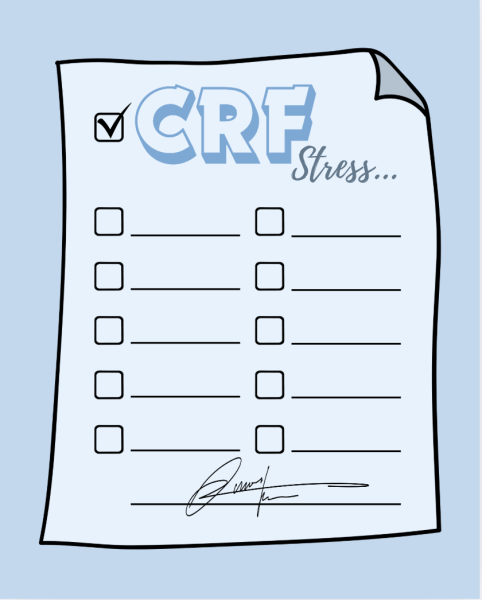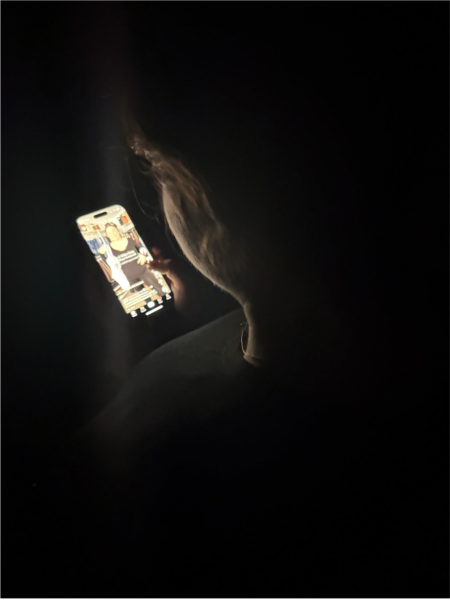APS primary schools face difficulties with instruction
As Arlington County continues to administer remote learning, educators have been put in a strange position, especially elementary school teachers. Online schooling has been occurring for more than two months now. Just as the community began settling into this routine, Arlington Public Schools (APS) began planning their hybrid plan, which is a form of schooling in which students attend in-person school for part of the week.
Enter Mr. Paul DiBenedetto, who has been teaching for thirty two years. Thirty of Mr. DiBenedetto’s years have been spent at Taylor Elementary where he currently resides as the interventionist, teaching math and reading in all grades. Although, this is his and many others first year teaching in a situation such as this.
“The safe environment of virtual teaching allows us to give direct instruction in a meaningful way that students are able to be engaged, and we are able to get the information and content to them,” Mr. DiBenedetto said.
Carrying a positive outlook, he finds the new situation to be very straightforward, skipping the in-betweens and the inconveniences of traditional schooling. Mr. DiBenedetto’s feelings are not fully shared by other teachers however.
“[It’s] been challenging to make school as engaging and interactive as we are typically able to when we’re in person,” Arlington Science Focus Health and Physical Education teacher Lindsay Lovett said.
Ms. Lovett feels like she is limited in how interactive her class is with the students.
“I try to keep tabs and with the students on my list as much as possible, but there are a couple of students who I’ve had limited interactions with due to the nature of the virtual environment,” Ms. Lovett said.
Similar concerns have arisen from other teachers throughout the county.
“Upper elementary grades are handling this better emotionally, although some kids disengage and leave their mic off, which is very concerning,” an anonymous South Arlington teacher said.
Teachers reported that keeping the attention of students is a common problem across the board.
“I’m not able to teach as robustly as I would in the classroom,” Mr. Keith Knott, an Ashlawn Elementary School interventionist, said. “I have to be very specific with a teaching point because videos have to be short for the attention spans of third graders. A lot of students are on an iPad and not in direct communication with me, so can’t be as robust with a lesson as I would like. It’s more curriculum based, a little less creative but more to the point.”
Teaching specials, classes like art, music, and PE, is especially a challenge since they require a different degree of interactivity.
“Music is so interactive,” Jamestown Elementary music teacher Ms. Claire Ruggiero said. “We’re singing, but I’m not hearing the kids in a full classroom singing back to me. The audio in Microsoft Teams just will not work in order to have the kids all sing together in unison. I miss the interaction, the dancing, the singing together, and playing instruments; it’s just been different,” said Ms. Ruggiero.
While there are often hiccups in connection, students have at least been able to understand how to operate the technology at their disposal fairly well.
“At the beginning we thought that it was going to be challenging, but students actually have shown us that they’re very tech savvy, and they have come out and been able to, if you want to say, rise to the occasion,” Mr. DiBenedetto said.
Teachers are using many applications, with one of the most prominent ones being “Seesaw.” It is quickly becoming a staple of elementary school teaching in Arlington.
“It is similar to Canvas, but it’s much more user friendly for the elementary schoolers,” “It has an easier interface and less clicking to access a test or assignment,” said Mr. Knott.
Outside of academics, students are also dealing with their own emotional struggles. The effects of social isolation have become more visible in the classroom.
“Whenever we start our class all they want to do is share–at least the extroverted kids– they just want to share and talk to somebody,” Ms. Lovett said. “It truly breaks my heart because I think I’ve always been a huge advocate for that. The most important aspect of school is the social interaction and emotional growth.”
Students have begun finding their own ways to interact with each other out of desperation.
“Younger kids want to socialize, so they have been starting virtual lunches in their own Microsoft Teams rooms, monitored by teachers,” the anonymous source said.
Students are not the only ones dealing with the current situation. Parents often express their opinions on the hybrid plan in school and county board meetings.
“I think there’s the concern with some parents and going back,” Mr. Knott said. “Other parents are concerned with what the hybrid model will look like, if they will be able to keep the same teachers for their children next year or if they will be shuffled around. I think the uncertainty piece is the most stressful for parents.”
The hybrid plan is especially challenging for the specials teachers.
“If we go when the kids are in the hybrid model we’re not going to be able to sing,” Ms. Ruggiero said. “When you are singing there are particles coming out of your mouth when you speak. It is the same with doing movement activities as well, when you are in a small desk space it’s just not going to be as impactful as it would be if you were at home. It would completely flip what I’m going to teach. I need to ensure that the kids are getting a solid music curriculum.”
The anonymous South Arlington teacher acted sympathetic toward struggling families in these different times.
“It’s really tough for Spanish speakers; there are lots of non-English speaking parents just doing their best in this socioeconomic situation.”
Many teachers feel like they are being overloaded with work, leaving little time left for their personal lives. Another problem teachers have been facing is the fusion of home and work-life.
“I’m working from home, it’s hard to close your laptop and be done for the day,” Ms. Ruggiero said. “Going to school is easy, because you leave school and you can have that separation. We’ve been working a lot, probably into hours that we shouldn’t be working in.”
Remote learning has made the generational gap of understanding technology more evident than ever. It has been multiple years since APS began equipping students with their own devices, but a large number of teachers did not grow up with anything other than paper and pencil.
“I understand other things are important to the county, but I think they really should have focused our professional development on things like technology,” Ms. Lovett said. “I’m older, I’m 42, and I didn’t grow up with technology so it’s been extremely hard for me.”
Mr. DiBenedetto, on the other hand, hoped that special education is getting the attention from the county it deserves.
“I would be mainly concerned most about our [special education] students and students with disabilities to make sure that we have the appropriate environment for them to work in, and resources.” DiBenedetto said.
The situation has taken a toll on many faculty members and families across the county. As the hybrid plan approaches, the future is starting to become visible, but some remain pessimistic of returning to normalcy.
“In this situation, it’s just really hard for everybody, and I don’t know what the right answer is,” Ms. Lovett said. “I wish life could be normal again. Unfortunately, it’s not right now, and I look forward to when it is, when we can all hug each other again.”
It can take a long time to appreciate something you had, but Mr. Knott said that being locked into this situation makes that easier.
“When we go back to school full time, we’ll have a deeper appreciation for the learning process in school, what teachers do, and just what the benefits of school are,” Mr. Knott said. “Just like a plant can take a long time to grow its first fruit, the fruits of our education are usually not appreciated until we’re in our 20s or 30s. After you’re in high school, you probably appreciate some of the things that your elementary school teachers did, but you probably didn’t appreciate them at the time.”
Many see this era of our lives as a transition or period of reflection. If we are put into this situation again, we will at least have practice from the past few months.
“No one said school was fine, no one said all of learning is fun,” Mr. Knott said. “Some learning is but learning how to fix my washer and dryer machine isn’t. Although it’s nice to know how to do those things when they break again.”












